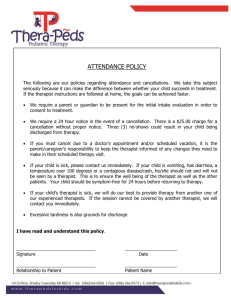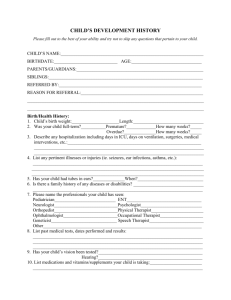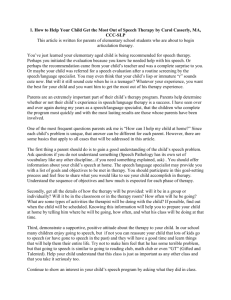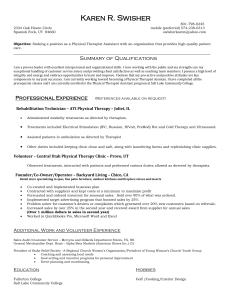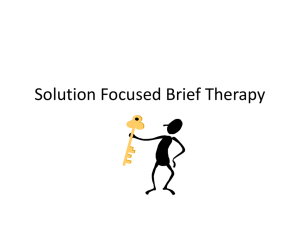lesson plan 6
advertisement
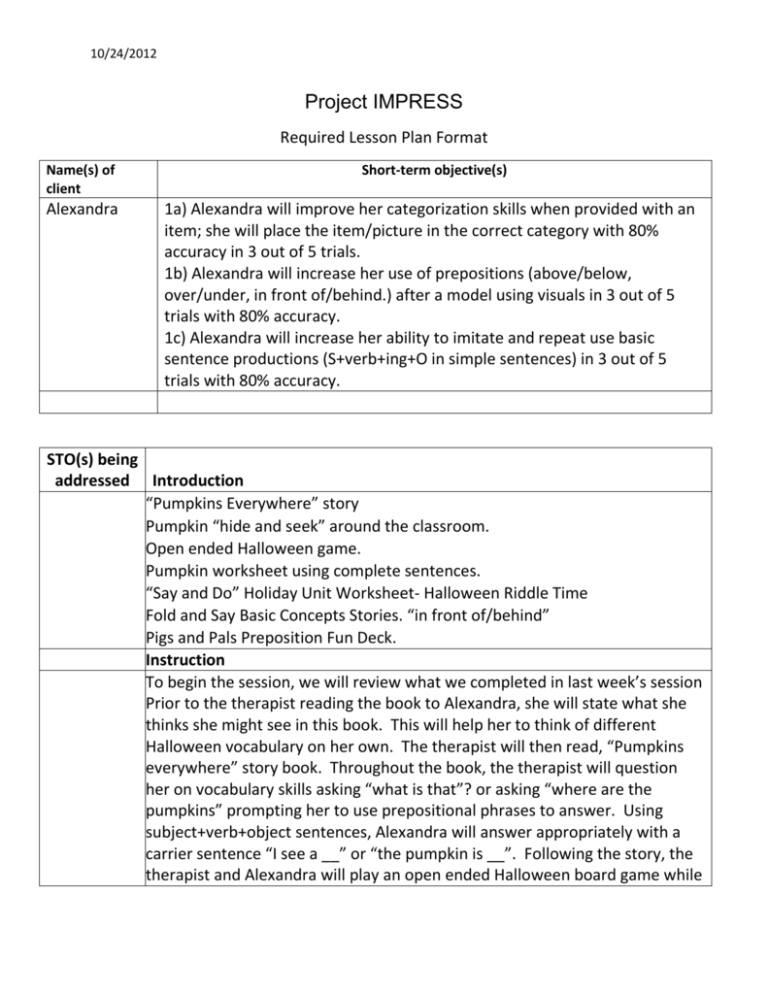
10/24/2012 Project IMPRESS Required Lesson Plan Format Name(s) of client Alexandra STO(s) being addressed Short-term objective(s) 1a) Alexandra will improve her categorization skills when provided with an item; she will place the item/picture in the correct category with 80% accuracy in 3 out of 5 trials. 1b) Alexandra will increase her use of prepositions (above/below, over/under, in front of/behind.) after a model using visuals in 3 out of 5 trials with 80% accuracy. 1c) Alexandra will increase her ability to imitate and repeat use basic sentence productions (S+verb+ing+O in simple sentences) in 3 out of 5 trials with 80% accuracy. Introduction “Pumpkins Everywhere” story Pumpkin “hide and seek” around the classroom. Open ended Halloween game. Pumpkin worksheet using complete sentences. “Say and Do” Holiday Unit Worksheet- Halloween Riddle Time Fold and Say Basic Concepts Stories. “in front of/behind” Pigs and Pals Preposition Fun Deck. Instruction To begin the session, we will review what we completed in last week’s session Prior to the therapist reading the book to Alexandra, she will state what she thinks she might see in this book. This will help her to think of different Halloween vocabulary on her own. The therapist will then read, “Pumpkins everywhere” story book. Throughout the book, the therapist will question her on vocabulary skills asking “what is that”? or asking “where are the pumpkins” prompting her to use prepositional phrases to answer. Using subject+verb+object sentences, Alexandra will answer appropriately with a carrier sentence “I see a __” or “the pumpkin is __”. Following the story, the therapist and Alexandra will play an open ended Halloween board game while 10/24/2012 using the pumpkin worksheet allowing Alexandra to use complete sentences. This worksheet has pumpkins that you match with a ”he” bear and a “she” bear using a complete sentence. When she does she will be able to take a turn on the game. In the next activity, the therapist and Alexandra will play “hide and go seek”. The therapist will hide object around the room for Alex to find. When she finds one, Alex will have to tell where she found it (ie: in front of the book) in a complete sentence using subject-verb-object. Before the last activity, the therapist will probe Alexandra about prepositions to see what she knows and what she has learned from last session. The therapist will review “top/bottom”, “in front of/behind”, and “above/below”. Lastly, the therapist will read Alex clues from the “Say and Do” worksheet and she will have to find the appropriate Halloween vocabulary. When she finds the correct one, Alex will be able to color the picture. Correction Procedures Visual cuesVerbal CuesGestural CuesCategory cut- Prompting Placing ourselves up’s pictures. Alexandra when in the spatial Webber needed using concepts preposition “what’s that?” targeting (in cards. front of/behind, top/bottom, above/below.) Lesson Wrap-up The therapist will send home all work Alexandra did during the session for review with her parents. The therapist will encourage Alexandra to look for positions used in the session throughout the day. Evidence supporting intervention strategies Clinician Directed Therapy: Comparison of Syntax Training for Students with Developmental Disabilities Utilizing Clinician-Directed Versus Self-Determined Session Paradigms. Education and Training in Developmental Disabilities, 2007, 42(1), 65-84 © Division on Developmental Disabilities Jane O'Regan Kleinert, Lori Gonzalez and John W. Schuster University of Kentucky Ruth Huebner Eastern Kentucky University Phonological Intervention within Storybook Reading. Topics in Language Disorders February 1997. pgs 69-88; Paul Hoffman PhD, Professor Department of Communication Sciences nad Disorders Louisiana State University Baton Rouge, Louisiana. Sentence Recasting: Treatment Effects on Speech Intelligibility and Length of Utterance in Children with Specific Language and Intelligibility Impairments. Journal of Early Intervention 2005 28: 34 Paul Yoder, Stephen Camarata and Elizabeth Gardner. DOI:10.1177/105381510502800105. 10/24/2012

